

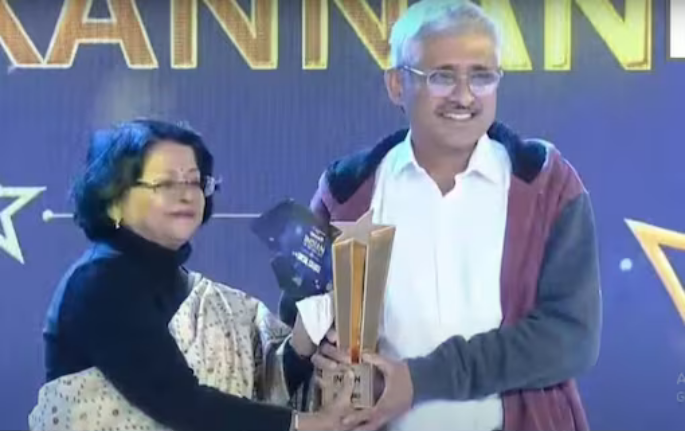
CNN-News18 Indian of The Year 2023: Oncologist Dr Ravi Kannan is the Winner in Social Change Category

Smoking life away, one puff at a time
Introduction
Polycyclic aromatic hydrocarbon, N-nitrosamines, Naphthylamine, 1,3-Butadiene, Benzene, Aldehydes, and Ethylene oxide. What seems like a throwback to our elementary chemistry lessons, are actually what you inhale, with every puff of cigarette smoke. And these are only a few honourable mentions, out of over 70 known carcinogens in tobacco smoke. Let us further delve into this flurry of smoke.
Tobacco smoking is a known precursor to some of the most devastating diseases in the world. There are over 1.3 billion smokers worldwide. These figures correspond to a number that is larger than the second-most populous country in the world! With such alarming statistics, it is no wonder that tobacco smoking is associated with over 17 classes of cancer and innumerable systemic diseases.

For the reasons above, it goes without saying that identifying the deleterious effects of smoking and ending this vicious habit is pertinent in reducing the mortality and morbidity that eventually ensues.
Psychopharmacology of cigarette smoking and addiction
A cigarette contains tobacco, which when burnt generates smoke particles carrying Nicotine. These make their way into the blood and subsequently the brain in just a matter of seconds. In the brain, complex reactions ensue, leading to the release of a neurotransmitter called Dopamine. Dopamine is the incriminating substance that makes smoking a pleasurable and addictive experience, often called a “Feel good hormone”. As a result, the brain associates this act of smoking with a euphoric feeling and plays it on loop. This explains why it is so hard for daily smokers and non-daily smokers alike to quit smoking.
Understanding the behaviour of smoking
This feeling of elation has paved the way to a high frequency of cigarette use among smokers. With these insurmountable amounts of nicotine, the neural circuitry gets acclimatised and perceives it as “the new normal”, causing the smoker to lapse into an addictive pattern.
In the event of abstinence for a few hours, nicotine concentrations fall in the blood. The smoker then goes into a frenzy of agitation and unease called ‘’Nicotine hunger’’. This is his body’s cue to restore the elevated levels of nicotine to which he had newly become accustomed. Now we understand the need for early initiation of smoking among chronic users as soon as one awakens in the morning. In fact, studies show that the time between waking up and taking the first drag of a cigarette is a good predictor to assess one’s chance at overcoming Nicotine addiction. This way, ‘’Nicotine Hunger’’ and ‘’Cue-driven smoking’’ are the propelling mechanisms behind smoking addiction.
Foremost outcomes of tobacco smoking
The effects of tobacco smoke are directly proportional to the duration of smoking. The cocktail of carcinogens and free radicals in tobacco smoke results in DNA damage, oxidative stress and inflammatory reactions. These pathogenic processes are the segue to conditions such as:
- Cancer of the upper airways, lungs, bladder and kidneys
- Coronary artery disease like Angina (Chest pain) and Myocardial infarction (heart attack)
- Respiratory diseases such as COPD (Chronic Obstructive Pulmonary Disease) leads to remodelling of the lung tissue along with structural changes causing breathing difficulty, productive cough and wheezing
- Peripheral arterial diseases (PAD) like Buerger’s disease are primarily caused by smoking. It presents with tingling of the feet and arms, pain, eventual discolouration, infection and gangrene of the affected area
- Alzheimer’s disease and vascular dementia

- Reproductive health- It is known to cause decreased sperm count and impotence in men. In women, smoking disrupts the normal menstrual cycle and poses a deleterious threat to their ovarian reserve. It is also associated with miscarriage in pregnant women
- Teratogenic effects- Smoking in pregnant women can lead to undescended testis in the newborn, low birth weight, and respiratory diseases. It is also known to cause sudden death of the infant (known as Sudden Infant Death Syndrome SIDS)
- Other diseases like osteoporosis in postmenopausal women, peptic ulcer disease, Rheumatoid arthritis.
Factors responsible for Smoking initiation
Unfortunately, low socioeconomic status is the encouraging factor behind the early initiation of smoking. It is most prevalent in lower and lower-middle-income countries. Lack of awareness has further propagated this issue.
Research has shown that individuals having friends, family or counterparts who smoke, exponentially increases their chances of smoking initiation due to the close-knit social structure and peer pressure. In actuality, smoking initiation and addiction has a heritable nature that can be passed onto future generations which can have huge ramifications on their journey towards smoking cessation. Other stand-alone mentions are consumption of alcohol, weak orientation towards academics and vulnerable mental health.
The only question that should daunt a smoker is, how many puffs are too many? Well, the answer is even one puff is too many. They say that awareness is the first step towards change. Having empowered you with scientific and evidence-based medicinal facts, we hope you agree that with every drag, you are smoking your life away.
Dr Shivakumar A
Dr Pranathi G
References
West R. Tobacco smoking: Health impact, prevalence, correlates and interventions. Psychol Health. 2017;32(8):1018-1036. doi:10.1080/08870446.2017.1325890
Adams TN, Morris J. Smoking. [Updated 2021 Feb 21]. In: StatPearls [Internet]. Treasure Island (FL): StatPearls Publishing; 2021 Jan-. Available from: https://www.ncbi.nlm.nih.gov/books/NBK537066/
Benowitz NL. Pharmacology of nicotine: addiction, smoking-induced disease, and therapeutics. Annu Rev Pharmacol Toxicol. 2009;49:57-71. doi:10.1146/annurev.pharmtox.48.113006.094742
Onor IO, Stirling DL, Williams SR, et al. Clinical Effects of Cigarette Smoking: Epidemiologic Impact and Review of Pharmacotherapy Options. Int J Environ Res Public Health. 2017;14(10):1147. Published 2017 Sep 28. doi:10.3390/ijerph14101147
https://commons.wikimedia.org/wiki/File:Smoking_in_Iran_01.jpg

Silchar – Ground zero for the battle against cancer in North-east India
Introduction
The average size of a human cell is about 100 microns. The wizardry that goes on inside this tiny structure is something that has fascinated humans for centuries. It is the very essence of life that makes us what we are. For some, however, this wondrous element of nature holds the potential to wreck unimaginable agony. The ‘Emperor of all Maladies’ aptly describes Cancer as organized chromosomal chaos. What starts as unregulated, irreversible growth in one single cell, soon propagates into a downfall for fate to behold. It ends up ravaging the human body leaving the patient with nothing but the sheer will to fight the battle against it.

Cancer does not discriminate. It affects every age group, ethnicity and gender. It is the second most common cause of death in the world. This is a cause of concern, especially in lower and lower-middle-income countries where large populations are victims of financial fatigue, making healthcare inaccessible and unsustainable. Amidst the growing trends of privatization and rising costs of healthcare, cancer patients in India have very few comforting prospects to rely upon.
The state of Assam, known for its luscious tea plantations is now being called the capital of cancer in north-eastern India and is currently fighting its biggest battle against this disease. Assam and its surrounding impoverished regions have the luxury of access to world-class cancer care, aiding them in withstanding the ramifications that usually follow a cancer diagnosis. The luminary steering those affected in such times of unprecedented illness is Cachar Cancer Hospital and Research Centre.
Cachar Cancer Hospital and Research Centre (CCHRC), Silchar was set up in 1996 to combat the rising number of cancer patients mainly in Assam, around the regions of Cachar and its neighbouring districts. It is led by Dr Ravi Kannan R, a Surgical oncologist, recipient of Padma Shri, as the Director of CCHRC. Dr Kannan has been lauded for his incredible work in Assam regarding cancer care and beholds India’s fourth highest civilian honour as a testament.
The ever increasing disease burden is being eased in the region by this tertiary healthcare centre catering to the needs of all types of cancers, by providing unparalleled quality of health care with next to no consultation or hospital charges. The hospital beholds numerous departments equipped with a multimodal approach towards cancer care.
Out of the 1.3 billion active tobacco users in the world, 80% of them belong to low income and lower-middle-income countries. According to an ICMR report based on 28 population-based cancer registries (PBCR), 1 in 7 males and 1 in 9 females of age less than 75 years in the Cachar district have a risk of developing cancer. These are alarming statistics considering the precedence that tobacco products hold in this region.
Dr Subhadra Goala, who works in the Department of Preventive Oncology at Cachar Cancer Hospital believes the major cause of cancer in Assam is the consumption of tobacco and related products. She recognizes tobacco products such as cigarettes, bidis and homemade tobacco preparations offered to guests as a sign of hospitality as the major culprit for the growing incidence of cancer in the region.
According to Dr Goala, the two main challenges being faced in the region are screening for cancer and the patients’ lack of awareness towards the healthcare facilities available. The hospital has made headway by partnering with NGOs and elementary schools in the region, spreading awareness about cancer screening, cancer care and ensuring that these beneficiaries are aware of facilities that can be availed at the hospital. However, a great deal remains to be done.

A patient having to deal with a price tag on healthcare continues to plague the workings of the modern era. The word neoplasia (tumour) comes from the Greek words neo ‘’new’’ and plasia ‘’formed’ which means finding new ways to sustain itself, and likewise, we need to find new ways to sustain accessible and inclusive healthcare for the underprivileged parts of our society. In bridging this great divide between need and reinforcement, Cachar Cancer Hospital and Research centre is inching towards fruition.
Dr Shivakumar A
Dr Pranathi G
References
https://www.who.int/news-room/fact-sheets/detail/tobacco
https://www.ncdirindia.org/All_Reports/Report_2020/default.aspx
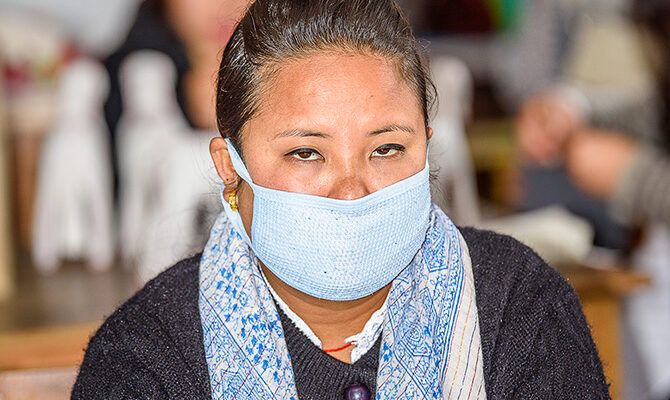
COVID-19 Support
The pandemic arrived in the Northeast and peaked much later than in the rest of the country brought by returning migrant workers post lockdown. The curve is now flattening. The future trajectory of the pandemic is unknown, but it is likely to peak again. Assam reported more than 2 lakh COVID cases. The impact of the vaccine remains to be seen. To keep patients and staff safe, it has become imperative to test patients before initiating treatment and several times during the course of the treatment which often lasts several months. This is because patients with cancer in general tend to suffer more adverse consequences of COVID infection more so when they receive chemotherapy or radiation or undergo surgery. Also, interventional procedures, even the simple ones like suctioning and chest physiotherapy on infected patients, increase the risk of infecting staff who perform or assist in these procedures. The hospital started with one COVID ward with 20 beds and expanded to a 50-bed facility at the peak for taking care of COVID infected cancer patients and staff.
In the present context, the hospital had an urgent need to set up a COVID-19 testing lab to speed up testing and follow up testing to improve patient and staff safety. A team of volunteers were able to raise funds to set up a testing service for COVID-19 using Cartridge Based Nucleic Acid Amplification Test (CBNAAT) equipment. This is a type of Polymerase Chain Reaction (PCR) which requires less preparation than a conventional Real Time PCR (RT – PCR). Four (or multiples of four) samples can be tested every hour depending upon the configuration of the equipment. Post COVID, the equipment will be continued to be used for diagnosing infections and estimating viral loads (non COVID) and markers including genetic markers for identifying various cancers.
The hospital expects to conduct about 1000 tests a month costing approximately Rs. 26 lakhs (at Rs. 2600 per test). This is inclusive of the test kit, the PPE and other consumables. We seek your support for this.
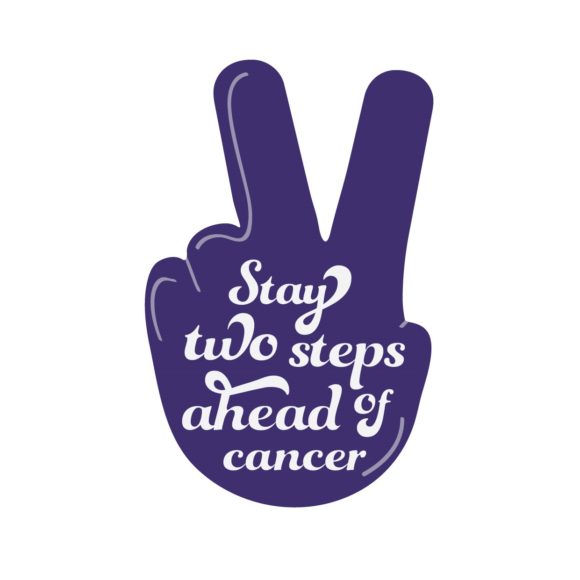
Dr.Arun Kurkure Initiation & Treatment Fund (AKITF) Project
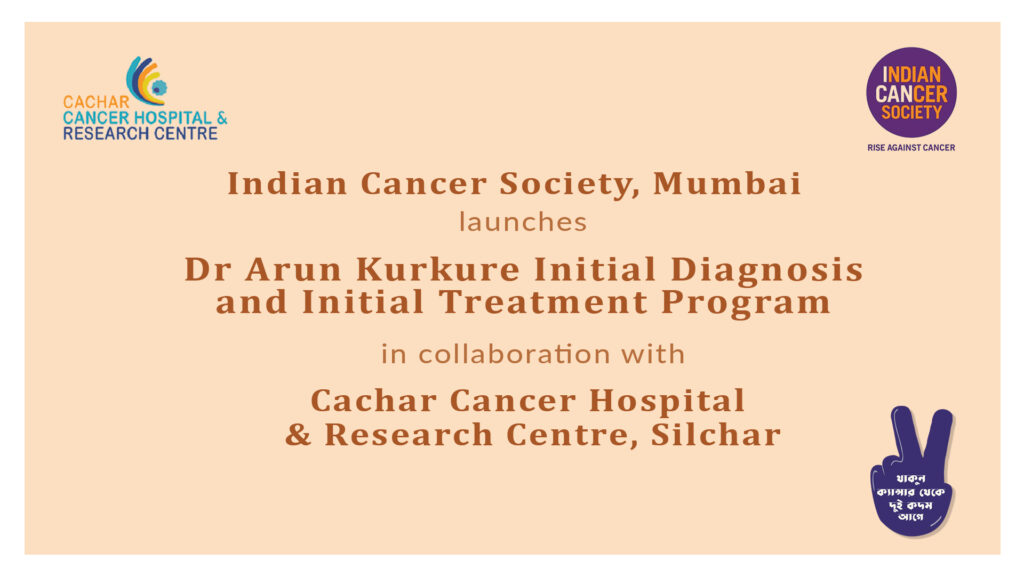
On the 4th of February 2019, a meeting was held in the hospital’s premise to formally launch the Dr.Arun Kurkure Initiation & Treatment Fund (AKITF) Project. It is an initiation of the Indian Cancer Society to help the patients who are unable to pay for the initial investigations.
Indian Cancer Society has been associated with the hospital since 2016 and is an integral part of the hospital’s patient support system.
According to Dr.Ravi Kannan, Director, CCHRC, inability to pay for the initial treatment has been the major bottleneck and has largely contributed to patient treatment abandonment. As per him, this project will positively impact the patient support program at the hospital. Through this project, all patients who are unable to take the investigations due to monetary constraints will be provided free of cost initial clinical evaluation. He also expressed his gratitude to ICS for this kind gesture.
To qualify for the scheme, the would-be beneficiary has to have an annual family income of less than four lakh. He/she has to bring an income certificate from the respective circle officer along with his/her Voter card / Aadhaar card, Ration card (if available) and two copies of passport photographs.

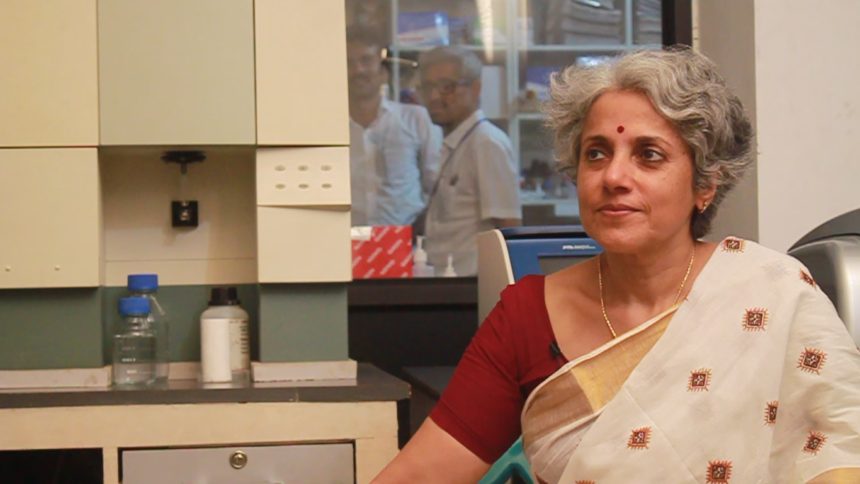
Dr. Swaminathan visits CCHRC…
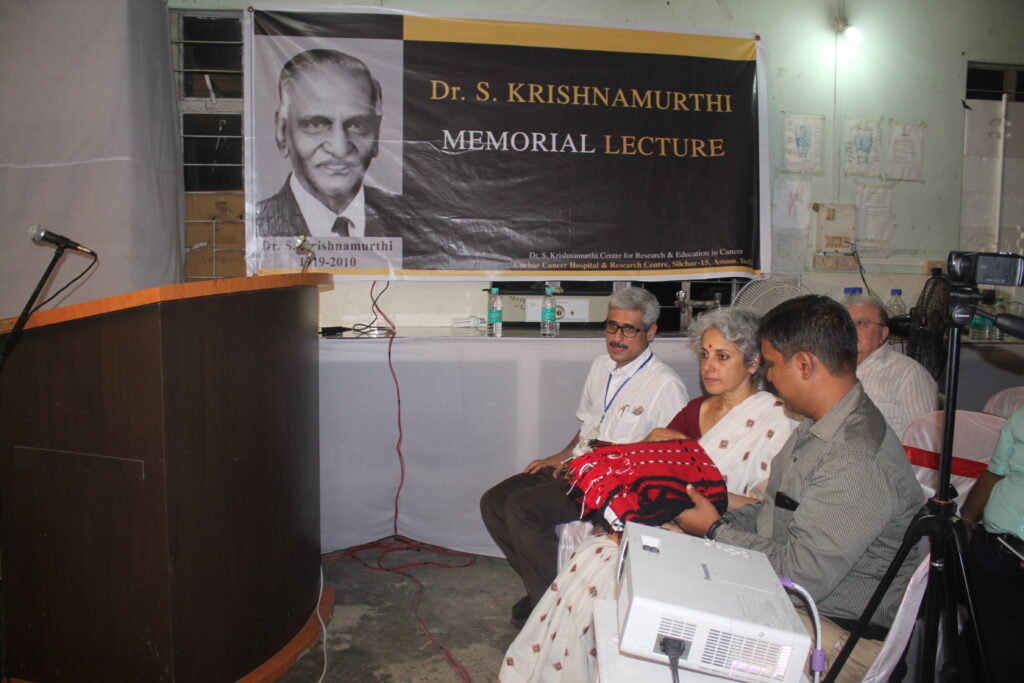
Cachar Cancer Hospital & Research Centre organised the 4th “Dr. Krishnamurthi Memorial Oration” on the 6th of October, 2017, acknowledging Dr. S. Krishnamurthi’s pioneering efforts towards understanding and treating cancer.
The Research wing of CCHRC, “Dr. S. Krishnamurthi Centre for Research & Education in Cancer (SKCREC)”, was established in 2013 to oversee all research and educational activities in the hospital. The centre is christened after Dr. S. Krishnamurthi and also owes its foundational philosophy to the doyen of Oncology in India. Dr. Krishnamurthi devoted all his time and energy working to prevent and treat cancer, and was awarded the prestigious Padma Shri for the same.
The speaker at the event was Dr. Soumya Swaminathan, Director General, Indian Council of Medical Research (ICMR), who spoke extensively on “How health research and data can improve health systems”. She has been recently appointed as the Deputy Director-General (Programmes), World Health Organization.
Dr. Swaminathan discussed an array of health-related issues across India and spoke enthusiastically about tuberculosis and cancer prevention. She further laid emphasis on medical research, data collection and scientific publication.
“Today’s research is tomorrow’s treatment.” – said Dr. Swaminathan, re-emphasising on Dr.Krishnamurthi’s mantra.
Later, at the end of the Q&A session, Dr.K.P. Chakraborty, Chairman, Cachar Cancer Hospital Society and Dr.Lakshmanan S, Deputy Commissioner, Cachar, Assam, handed over the prestigious Dr. S. Krishnamurthi Award to Dr. Soumya Swaminathan, followed by a brief media interaction session.
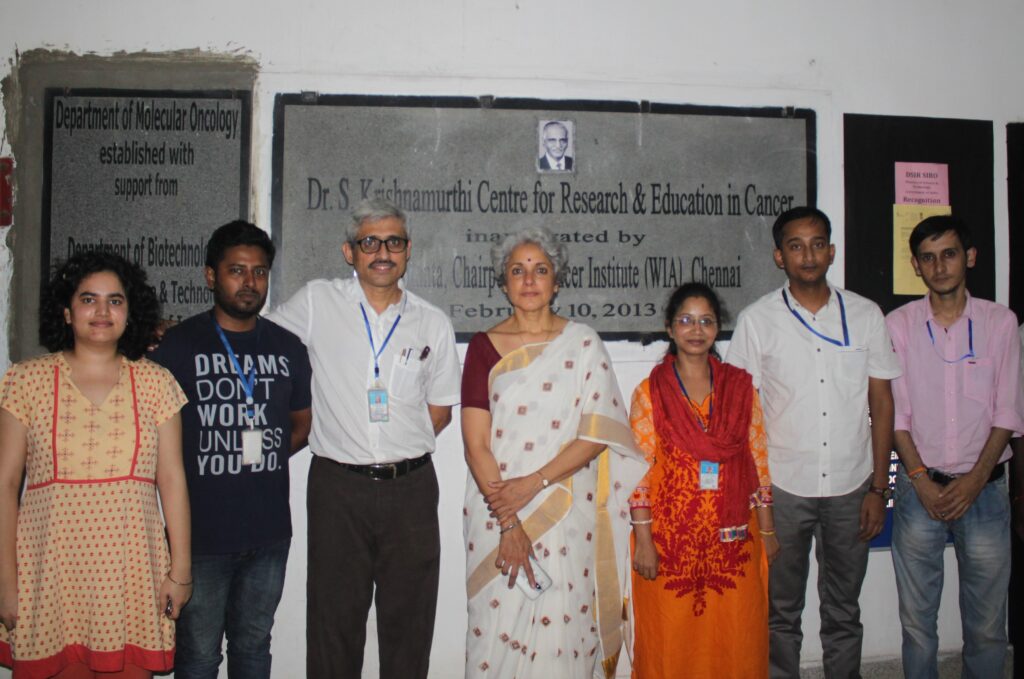
Team CCHRC congratulates Dr. Swaminathan on her recent appointment and wishes her all the best in her endeavours.Team CCHRC also thanks all the guests and dignitaries for their gracious presence and active participation.
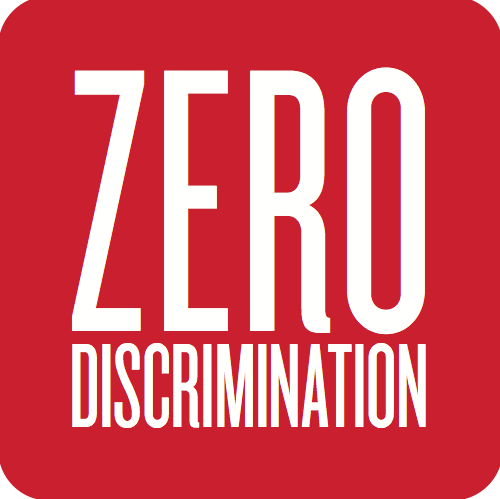
Cancer Never Discriminates
“North-eastern states are less polluted compared to other metropolitan cities and regions of the country. Yet, it baffles the oncologists that most number of cancer cases is registered here. Every year, 40,000 new cases of cancer come up. In Assam, 130 cancer cases per 1 lakh population are reported, while in Cachar, it is 125 per 1 lakh. According to the NCRP data, tobacco alone accounts for cancer in 40% in men and 20% in women. It is most unfortunate that cancer in 70% cases is detected in the final stages and thus it becomes impossible to cure the patient,” said Dr Rajeev Kumar, oncologist, scientist, Dr S Krishnamurti Centre for Research and Education in Cancer, Cachar Cancer Hospital and Research Centre, who is addressing the audience as guest speaker at Gurucharan College auditorium on the occasion of National Science Day today.
Dr Kumar delineated the impact of biomarker in translational cancer research and enlightened the audiences on the various aspects of the deadly disease. “In males, lung cancer is the commonest while in females breast cancer. It is apprehended by researchers and oncologists that by 2025, 2 crore cancer cases will be reported in the country. The basic cause of cancer is imbalance between cell division and cell death. It is pity that our won tissue, organ, cell becomes our enemy. We die within, not from without,” he added to say.
On an advisory note Dr Kumar said, “We should abstain from consuming alcohol, tobacco, areca nuts, smoked meat and red meat. However, correct reason behind the origin of the disease is not known, yet, persons consuming such products have been often diagnosed with cancer. Cancer can be genetic, hereditary and familial in nature. Even normal cells may become cancer cells. Unless detected at an early stage, it usually leads to death.” Dr Kumar further said in addition to early detection, patients should also comply with and take medicines on time so that they can be cured.
“There are various modes of diagnosis of cancer, endoscopy, biopsy and the like. There are four options for treating the disease, surgery, immunotherapy, radiation and chemotherapy. Certain guidelines have been set by the National Cancer Care Network which is religiously followed by all oncologists all over the world. Cachar Cancer Hospital and Research Centre, Silchar, is a proud active member of the National Cancer Grid which is based in India,” added Dr Rajeev Kumar. He also said that the best cure in case of advanced cancer is supportive cure. “To make the departing a dignified and enhance the quality of life, this cure is best, though the patient cannot cure from advanced stage,” said Dr Kumar.
Dr Rajeev Kumar said, “Any lump in the mammary glands, any discharge, unexplained weight loss and change in bowel pattern should be reported to the doctors.” Speaking as the chief-guest on the occasion, Dr Sourindra Kumar Bhattacharjee, president, students’ governing body said, “It is essential to organize such seminars and observe such important days in order to develop scientific temperament among the students. Cancer discriminates none. It will not leave anybody once it affects the body.” Among others present on the occasion included, Dr Bibash Deb, principal, Dr Shankar Prasad Bhattacharjee, former principal and head, Department of Zoology, Dr Baby Singha, head, Department of Zoology of Gurucharan College and Dr Raj Pradeep Chakraborty, AGM, BSNL, engineer, citizen scientist and an authority on the peopling of South Asia.
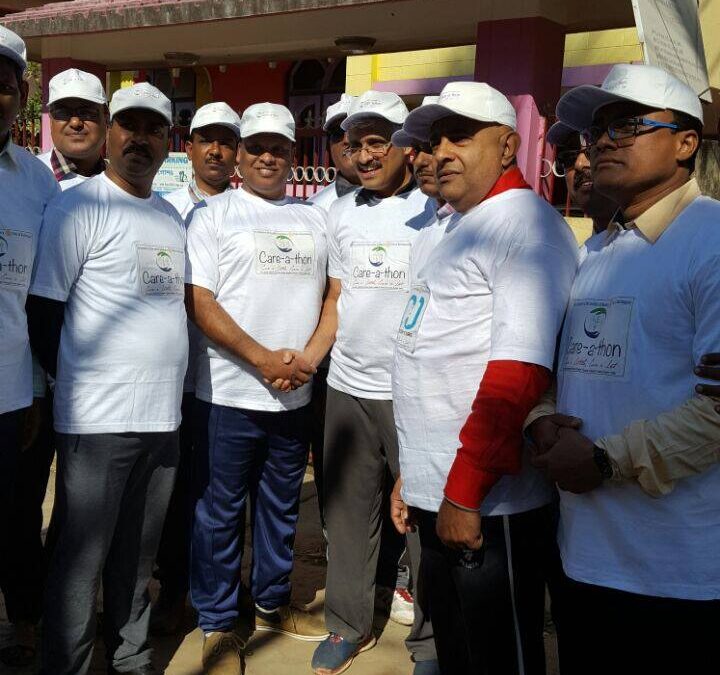
Thank You for Supporting Care-a-thon
Thank you for supporting cancer cure at The Cachar Cancer Hospital & Research Centre. The “Care-a-thon” witnessed enthusiastic participation of people from all walks of life:
- 133 BN BSF joined the run with almost 80 jawans.
- Deputy Commandent Shri B.B.Hosmani, also joined the run along with their jawans.
- LIC participated with around 50 people from Karimganj branch.
- United Bank Of India supported by sponsoring the breakfast / refreshment after the run.
- SBI participated with 20 people from the main branch.
- The Inspector of schools Karimganj sent a circular to all schools to participate in the run with minimum 50 students and 2 teachers from each school.
- People in general supported the cause and participated in the marathon in large numbers.
Thank you once again for your support.
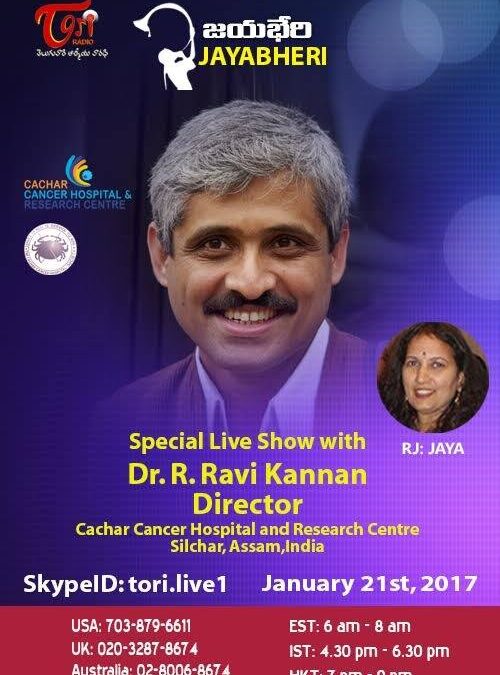
Live Talk Show with Dr. R. Ravi Kannan
Jayabheri 21st Jan 2017 @ IST 4:30pm – Live Talk Show with Dr. R. Ravi Kannan, Oncologist ….Meet the Man Who Is Building a World Class Cancer Hospital in Cachar, Assam, India.
One Doctor Is Quietly Building a World-Class Cancer Hospital for the Poor in Assam. Dr. Ravi Kannan’s vision has turned a small cancer centre into a full-fledged hospital in Assam’s Barak valley. …
The high incidence of cancer in the region, possibly due to extensive tobacco use, prompted citizens of the valley to come together and set up a hospital in 1996.
So Dr. Kannan, who was a renowned oncologist at the Adyar Cancer Institute in Chennai, and his family, packed their bags and moved to Silchar.
Over the years, this doctor and his incredible team managed to turn the place around. There were only 23 staff members when he joined. Today, there is a 200-member strong team.
The Cachar Cancer Hospital Society is raising funds to support cancer patients. For more details visit its page or website http://cacharcancerhospital.org
To get in touch with Dr. Ravi, mail him at ravi.kannan@cacharcancerhospital.org

Recent Comments